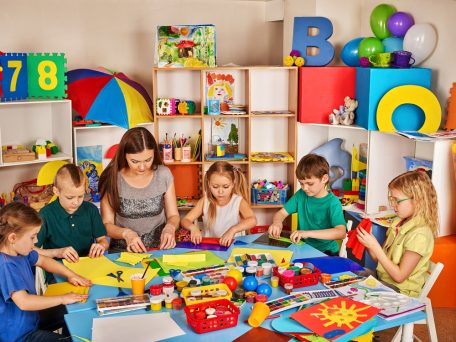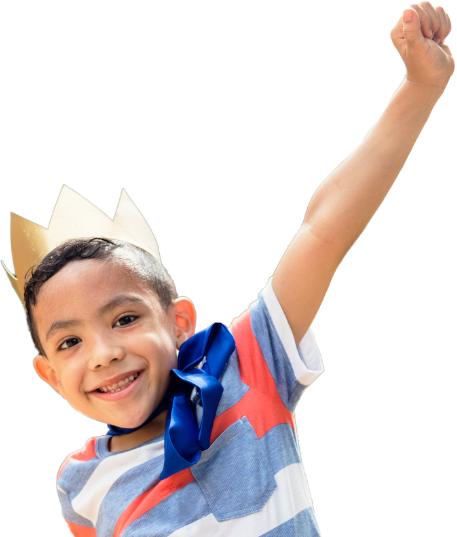A lot goes on in the development of young children before they reach school age. They learn how to move their bodies, how to talk, and also how to control themselves. Although social and emotional learning doesn’t get quite get the same attention as a child’s first word, it’s critical to their success in life.
Cooperation, learning to share, and communicating our needs are all things we will use every day throughout our whole lives. That learning begins very early. In school, children who have a good understanding of social and emotional learning (sometimes shortened to SEL) benefit greatly. A child with healthy emotional health often shows:
• A positive mood
• The ability to follow instructions
• Recognizing and labeling their own emotions
• Express needs and wants clearly
How children learn social and emotional skills
Preschool age children can develop SEL skills in a preschool setting, with the help of teachers experienced in guiding kids emotionally. With other children present, they learn how to share toys by taking turns, or to describe how they feel when their prize tower is knocked over.
A teacher who still treats them with warmth even when they’re having a bad day may help them in their ability to build better bonds with adults.
Learning they are respected and cared for at school can have a surprisingly long lasting impact on their emotional health as preschoolers transition to school life.
All these things come from a rich learning environment, with plenty of other kids and knowledgeable teachers to help them along the way.
The benefits of SEL skills
Kids who have been in an environment that values SEL skills and intentionally develops them benefit greatly from it. There have been hundreds of different studies conducted on various aspects of SEL skills in the classroom. These studies show:
• An 11% improvement in achievement tests
• 9% decrease in conduct problems
• 10% decrease in emotional distress at school
Since SEL skills aren’t part of a standard curriculum, its up to parents to seek out a school, or in a child’s younger years a preschool, that values SEL and develops it.
How teachers develop SEL skills
Teachers can have a big impact on how well a child learns these skills. This includes helping a child learn how to share toys with others, or helping them find the words to express their feelings, but they can also help in a variety of other ways.
There are a number of wonderful picture books out there teachers can read with students that can help open their world a little bit more. Books like, “When Sophie gets angry, really really angry,” help kids learn what to do to control their temper. “Can you be a friend?” Helps kids learn what friendship entails in a more concrete way.
A teacher may also help by building up the confidence of a child on an individual level. They may give the child appropriate positive physical contact, such as high-fives or pats on the shoulder. They may help teach the kid they are valued every day, even when it is not their best day.
When a child brings them a toy and chats about it, showing interest in it and describing the toy back to them in a different way helps boost vocabulary.
A formal SEL program has many benefits to a child, no matter what their age. Social and emotional skills are extremely valuable, and is one thing your child will benefit from their entire lives.








